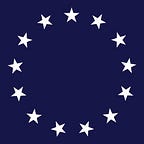Constitutional Convention gets underway
At the urging of Edmund Randolph and James Madison, a meeting was called to revise the Articles of Confederation into a workable plan of government that would bind the country together. The earlier Annapolis Convention had previously been called with the “sole and express purpose of revising the Articles of Confederation”, intending to “render the federal constitution adequate to the exigencies of government and the preservation of the Union.”
On May 25, 1787, the Constitutional Convention was called to order, composed of 55 delegates from 12 of the 13 colonies. Returning to Independence Hall, the same place many of them had previously met for the Continental Congress and later signed the Declaration of Independence. Rhode Island chose not to send delegates, fearing the new system the delegates decided on would be detrimental to the state’s economy.
Per the urging of James Madison, fellow Virginian George Washington consented to attend and was soon named the convention’s presiding official by unanimous vote. Now known as the Framers of the Constitution, those in attendance with Madison and Washington were well-educated and most were in their 30s and 40s. Benjamin Franklin was one of several exceptions to that. 81-years-old when the convention began, he held the title of oldest delegate.
The task assigned to them was to resolve problems faced by the young country. Numbered among the problems to be addressed were:
- Tariffs being levied by different states on goods shipped from one state, passing through a second state, en route to a third.
- A tax base to support an army and/or navy.
- The need to set policy and manage the Northwest Territories due to the high number of settlers making their way into the territory following the American Revolution.
- The need for a coherent foreign policy that reflected the needs of the entire country.
In the book, A Brilliant Solution, historian Carol Berkin states, “These men (the Founding Fathers) inhabited a world alien to modern Americans, a world in which the United States was a fragile, uncertain experiment, a newcomer, and to some degree a beggar at the gates of power and prestige among nations. In 1787, our treasury was empty. Debts to foreign governments and debts to our own citizens could not be paid, and this was a blow to the nation’s honor as well as to its future credit. How could European nations deal with…
